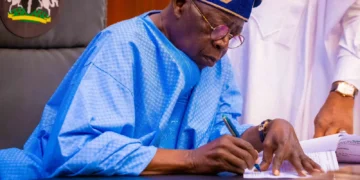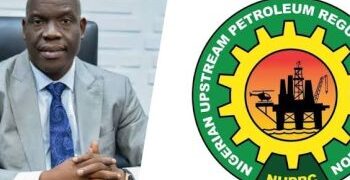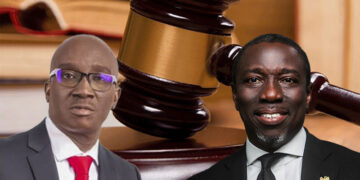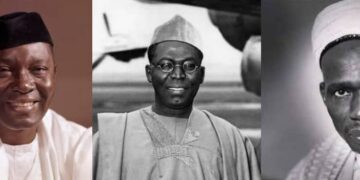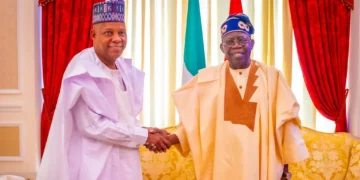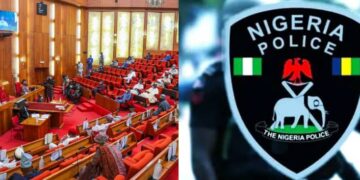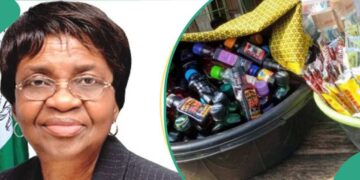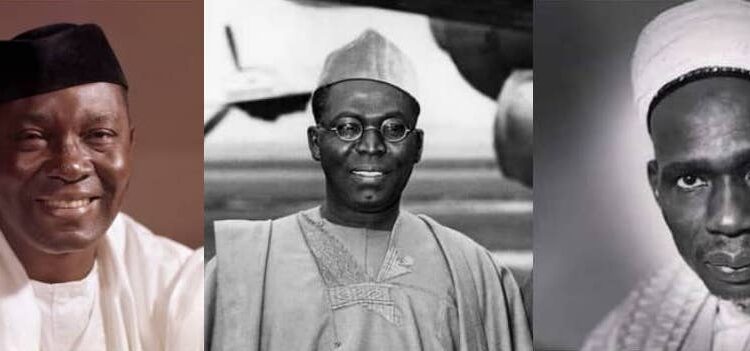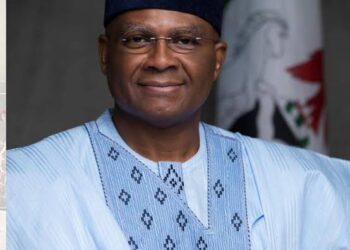Nigeria’s democratic journey has been punctuated by complex ethno-regional dynamics, ideological fragmentation, and intense contestations for power. From the First Republic to the Fourth, electoral politics have never been devoid of historical weight, tribal underpinnings, and regional sentiments. The 2023 presidential election, though concluded, reveals deeper contours of voter behaviour, political allegiance, and what could possibly shape the political landscape of 2027, particularly with a possible Atiku Abubakar and Peter Obi alliance.
In the First Republic, the major political parties emerged along ethnic and regional lines. The Northern People’s Congress (NPC) was largely dominated by Hausa-Fulani elites and controlled the Northern Region. The Action Group (AG), predominantly Yoruba, held sway in the Western Region, while the National Council of Nigerian Citizens (NCNC) found a stronghold in the Eastern Region with majority Igbo support. These parties reflected the socio-political and cultural divisions of Nigeria’s pluralistic society.
During the Second Republic, history nearly repeated itself. The National Party of Nigeria (NPN) emerged as a reincarnation of the NPC, with a strong base in the North. The Unity Party of Nigeria (UPN) echoed the AG’s Yoruba ethos, and the Nigerian People’s Party (NPP) garnered support in the East. The pattern remained: regional parties, ethno-religious identities, and fragmented ideologies. Philosopher Jean-Jacques Rousseau warned, “As soon as any man says of the affairs of the State ‘What does it matter to me?’ the State may be given up for lost.”
In the Third Republic, though aborted prematurely, the Social Democratic Party (SDP) and National Republican Convention (NRC) were designed to cut across ethno-regional divides. The annulled June 12, 1993 election, widely believed to be won by MKO Abiola of the SDP, showed a rare moment of national unity, where tribe and tongue took a back seat. Yet, this promise was short-lived. As Solomon wisely taught in Proverbs 29:2, “When the righteous are in authority, the people rejoice: but when the wicked beareth rule, the people mourn,” a truth reflected in Nigeria’s subsequent turmoil.
The Fourth Republic, which began in 1999, has seen a recurring pattern of ethno-regional calculus. The Peoples Democratic Party (PDP), at its inception, created a semblance of national unity, presenting candidates from different regions. Olusegun Obasanjo from the South-West served two terms, followed by Umaru Musa Yar’Adua from the North-West, Goodluck Jonathan from the South-South, and then the All Progressives Congress (APC) took over with Muhammadu Buhari from the North-West.
The 2023 elections marked a dramatic shift in this historical trajectory. Bola Ahmed Tinubu of the APC won the presidency, but not without significant contestations and shifting alliances. Tinubu won 12 states: 7 in the North and 5 in the South, including Borno, Jigawa, Kogi, Zamfara, Niger, Nasarawa and Kwara in the North, and Ondo, Ekiti, Oyo, Ogun, and Rivers in the South. Atiku Abubakar won 12 states as well: 9 in the North,Sokoto, Katsina, Kebbi, Kaduna, Bauchi, Gombe, Yobe, Adamawa, and Taraba,and 3 in the South: Osun, Bayelsa, and Akwa Ibom, Peter Obi of the Labour Party won 11 states and the FCT: 9 in the South,Anambra, Enugu, Ebonyi, Imo, Abia, Cross River, Edo, Delta ,Lagos, and Ondo,and 2 in the North,Benue and Plateau, along with the Federal Capital Territory (FCT).
Amid these results lies a deeper truth: the 2023 elections were significantly shaped by suppressed votes, logistical hitches, tribal sentiments, and religious undertones. Atiku Abubakar’s national appeal was undeniable. He embodies the spirit of unity and reconciliation, echoing the words of Christ in Matthew 5:9: “Blessed are the peacemakers: for they shall be called the children of God,” a fitting description of his efforts to bridge Nigeria’s divides.
Many observers noted the suppression of Atiku’s votes in the Northern states. In states like Kano, Katsina, and Kaduna, numerous reports and observer missions, including those from the EU and Yiaga Africa, flagged irregularities and credibility issues in these regions. In Plateau and Bauchi, sudden disruptions in collation processes skewed the final outcomes.
Like the prophet Amos thundered, “Let justice roll down like waters, and righteousness like an ever-flowing stream.” Atiku’s nationwide structure was unparalleled, and he maintained a stable base in the North while also making inroads in the South-South and parts of the Middle Belt.
A significant factor influencing the 2023 election was the internal dynamics within the APC. The Congress for Progressive Change (CPC) faction, which historically formed a strong foundation for the APC,particularly in the North-West,played a key role in Muhammadu Buhari’s 2019 presidential victory. In that election, Buhari secured decisive wins in states such as Kano, Katsina, Zamfara, and Kaduna, all traditional CPC strongholds that helped consolidate APC’s northern dominance.
However, by the 2023 election, this loyalty shifted noticeably. Reports from political analysts and insiders indicate that a substantial number of CPC loyalists became disenchanted with the APC due to perceived marginalization and ideological misalignment within the party. Consequently, many of these supporters defected or abstained from full support, contributing to APC’s loss in several of these previously secure states.
Notably, Bola Ahmed Tinubu failed to carry Kano, Katsina, and Kaduna in 2023, states Buhari had won in 2019,reflecting a significant erosion of the APC’s northern base linked to the weakening of CPC’s influence within the party.
This exodus and disaffection among CPC supporters have thus left a conspicuous gap in APC’s Northern stronghold, reshaping the political landscape and providing openings for opposition candidates.
As we approach 2027, the shifting political dynamics point towards a possible Atiku/Obi coalition, a union that could create an unprecedented national alignment. The data from 2023 shows that Obi had the South-East and parts of the South-South locked down. Atiku, on the other hand, has the North-East, much of the North-West, and parts of the South-South under his influence. Combining forces would mean uniting the Northern and Southern blocs under a common purpose.
There are six cardinal factors that would likely shape the 2027 elections:
1. Atiku’s National Appeal: Unlike regional candidates, Atiku Abubakar possesses a pan-Nigerian image. He is seen as a bridge-builder, one who transcends parochial cleavages. His philanthropy, democratic sacrifices, and long-standing political presence endear him to various demographics. “Blessed are the peacemakers: for they shall be called the children of God” (Matthew 5:9).
2. Youth Voter Turnout: In 2023, youth participation surged, especially in urban areas. Data from INEC and independent analysts showed high youth turnout in cities like Lagos, Abuja, and Port Harcourt. With improved electoral reforms, their impact in 2027 could triple. The Atiku/Obi combination resonates deeply with this demography.
3. Economic Realities: With hardship deepening under the Tinubu administration, the electorate may seek a credible alternative. The World Bank and IMF have highlighted increased inflation, food insecurity, and subsidy fallout as worsening living conditions. Atiku’s economic blueprint, which emphasises privatisation, liberalisation, and restructuring, could be more appealing.
4. CPC Block Exit: The massive departure of CPC loyalists from APC weakens the party significantly in the North-West. This provides Atiku, who still enjoys grassroots support in that region, with an electoral advantage.
5. Christian and Middle Belt Sentiments: The Tinubu-Shettima Muslim-Muslim ticket alienated many Christian voters, especially in Plateau, Benue, Taraba, and Southern Kaduna. Election post-analysis and media commentary revealed notable backlash and electoral resistance. Atiku’s religious inclusivity would be a key electoral asset.
6. Coalition Dynamics: If Atiku and Obi consolidate their forces, the sheer spread of their combined influence would cut across all six geopolitical zones. This coalition could form the most formidable alliance since 1999.
Ultimately, 2027 may present Nigerians with a choice between continuity in economic hardship and insecurity or a paradigm shift under a tested democrat. The biblical wisdom in Proverbs 29:18 complements this sentiment: “Where there is no vision, the people perish,” underscoring the urgent need for visionary leadership to guide Nigeria forward.
As Plato once remarked, “One of the penalties for refusing to participate in politics is that you end up being governed by your inferiors.” In Atiku Abubakar lies the experience, the national outlook, and the willingness to restore Nigeria to a path of prosperity and justice. He remains a beacon of hope, a colossus bestriding Nigeria’s political landscape, and the arrowhead of a possible coalition that could redefine the future of Africa’s most populous nation.
Aare Amerijoye DOT.B,
Director General,
The Narrative Force.


